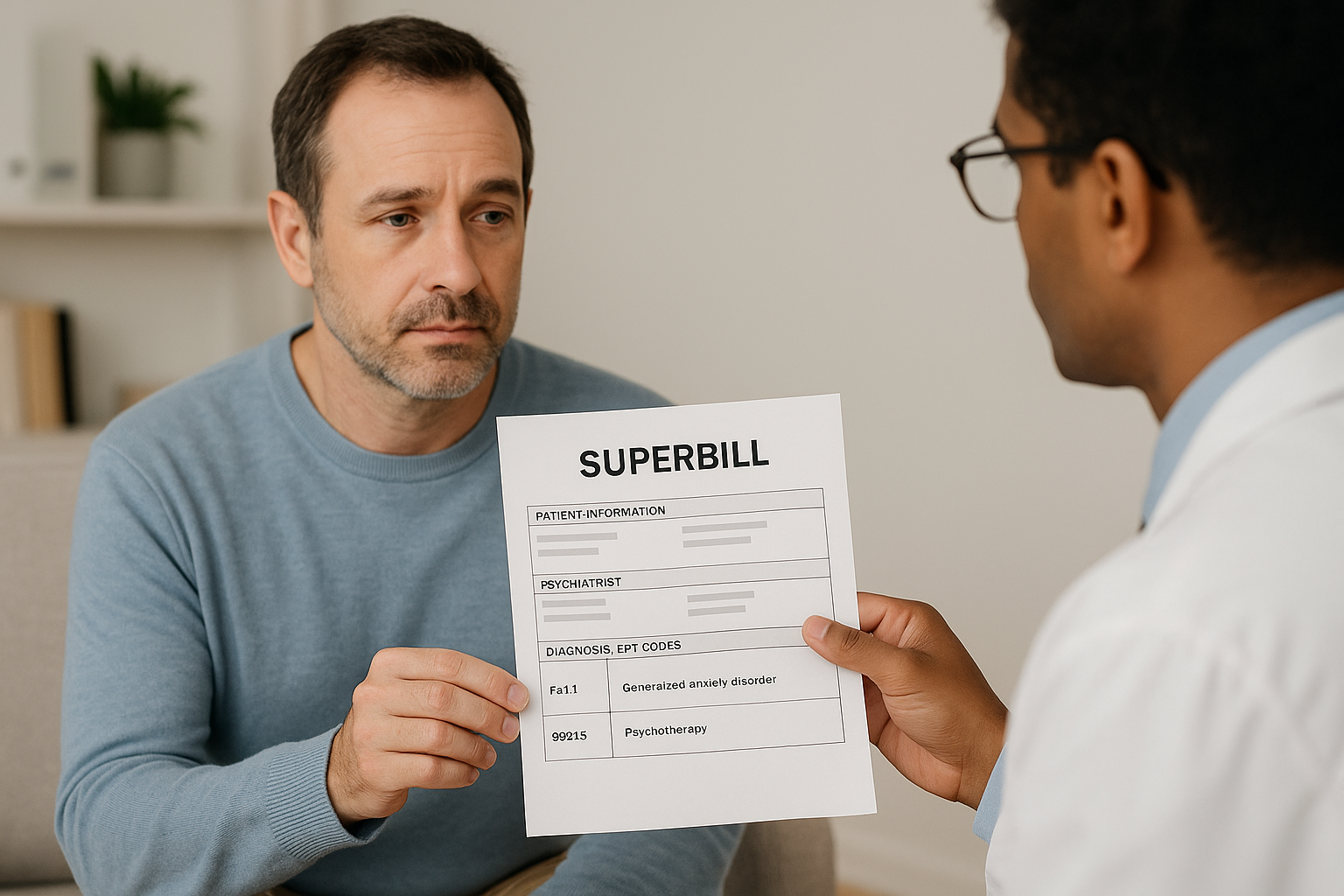How to Prepare for Your Initial Visit with a Psychotherapist
Your first therapy session isn’t about having the perfect story—it’s about showing up, as you are, and beginning something meaningful.


Making that first therapy appointment is a bold, quiet act of hope. You might feel nervous, curious, skeptical—even a little tired of telling your story again. That’s okay. Whether this is your first time in therapy or you’re returning after a break, your first session isn’t about having the right words or a perfect plan. It’s about showing up.
Therapy isn’t a performance. You’re not there to impress or convince anyone of anything. In fact, some of the most powerful beginnings sound like, “I don’t know where to start,” or “I’m not even sure this will help.” That honesty is more than enough. It’s a sign you’re ready for change—whatever that looks like for you.
Starting the Conversation
Most first sessions last around 45 to 60 minutes. When I'm seeing patients for purely therapy, my sessions begin with some version of: “Tell me what brings you in today.” With a blank canvas, we proceed to talk about what’s been weighing on you—whether it’s a recent event, a long-standing feeling, or just a general sense that something’s off. If you’ve been to therapy before, you might be asked about past experiences, what worked (and what didn’t), and whether you’re hoping for something different this time around.
We’ll also touch on life outside of therapy—your work, family, relationships, and how you tend to handle stress. It’s less about checking boxes and more about understanding the bigger picture of you. You’re more than your symptoms and each life story you elaborate on helps me and your therapist learn something new about you!
But don’t worry—you don’t have to unpack it all at once. You set the pace. If there are things you’re not ready to talk about, say so. Therapy works best when it feels like a collaboration, not an interrogation. Often, I'll have my patients ask me for some time to think, write down key points and even take notes for them on things they find difficult.
What Therapy Is (And What It Isn’t)
Let’s clear something up: your therapist is not there to “fix” you. They’re not taking mental notes to diagnose you in five minutes or silently judging you behind a clipboard. The first session is about connection. Can this person hold space for you without rushing to conclusions? Do they seem like someone who will stay present even when the conversation gets messy?
Good therapy isn’t about advice-giving or quick solutions—it’s about helping you build insight, shift patterns, and feel more empowered in your own life. And while therapists bring years of training and evidence-based tools, they’ll never pretend to have it all figured out for you. What they offer is reflection, perspective, and consistent support—things many of us rarely get in everyday life.
Preparing (If You Want To)
You don’t have to prep for your session—but if reflecting a little beforehand helps you feel grounded, consider asking yourself:
- What’s been hard lately?
- What are you hoping might feel different after therapy?
- Are there things you’ve avoided bringing up before that feel important now?
Even just naming your hesitations—“I’ve had bad therapy experiences before” or “I’m afraid this won’t work”—can be a meaningful start. You’re not expected to be polished. You’re expected to be real.
Making Sense of the Experience
After your session, take a quiet moment to check in with yourself. Not Did I cry? Did I solve anything?—but rather, Did I feel respected? Heard? Safe enough to come back?
Therapy isn’t always comfortable, especially in the beginning. But the right kind of discomfort feels productive, not panic-inducing. If something didn’t click, you’re allowed to say so. The relationship you have with your therapist matters just as much as the techniques they use. And sometimes, finding the right fit takes more than one try.
If You’re Wondering Whether You Even “Need” Therapy
Here’s the truth: you don’t need to be in crisis to start therapy. Wanting to feel better is reason enough. So is wanting to understand yourself more deeply. Therapy isn’t just for people with diagnoses—it’s for anyone seeking clarity, support, or space to breathe. And it’s certainly not a sign of weakness. If anything, it’s a sign that you’re paying attention to your inner world and choosing to take it seriously.
We live in a world that often rewards burnout, avoidance, and emotional self-reliance. So if reaching out feels unnatural, even a little shameful, know that you're unlearning something many of us were taught: that asking for help means something’s wrong with you. It doesn’t. It means you’re human.
Final Thought
Your first therapy session is not a test. It’s a doorway. You don’t have to know what’s on the other side—just that you’re ready to walk through it. Therapy can be many things: a mirror, a map, a place to rest, a place to grow. But most of all, it’s a relationship. One rooted in safety, respect, and the quiet but radical belief that change is possible.
All you have to do is show up as you are. Therapy will meet you there.
More Articles

How Does Reimbursement Actually Work for Therapy / Psychiatry with Blue Cross Blue Shield in New Jersey?


